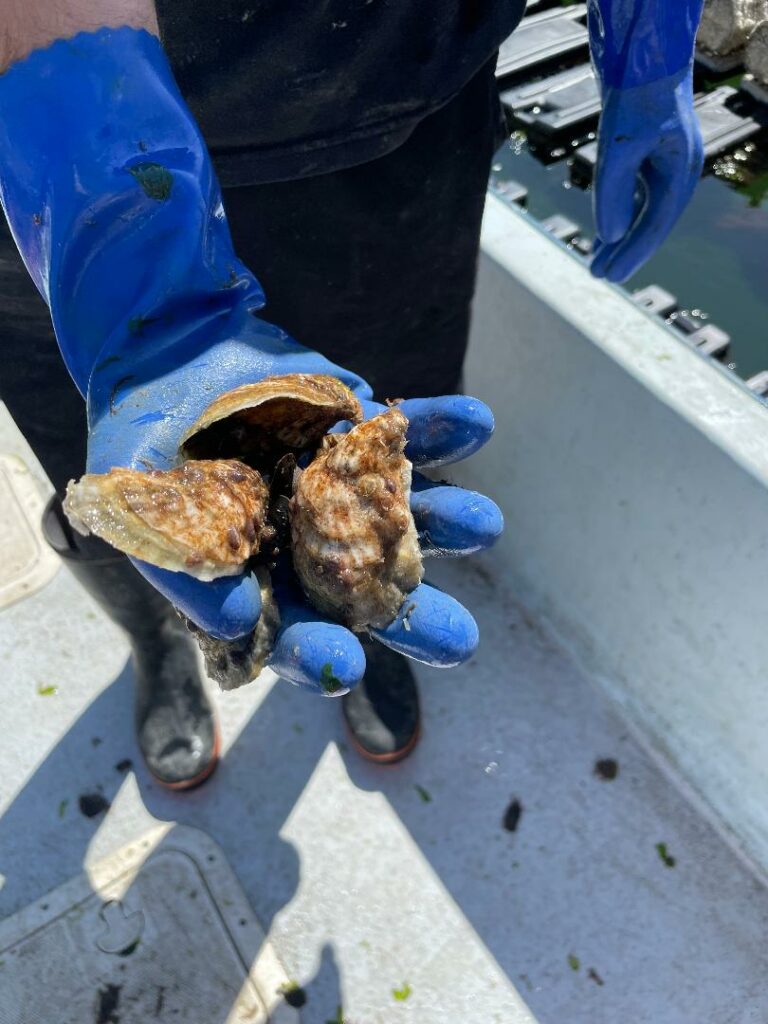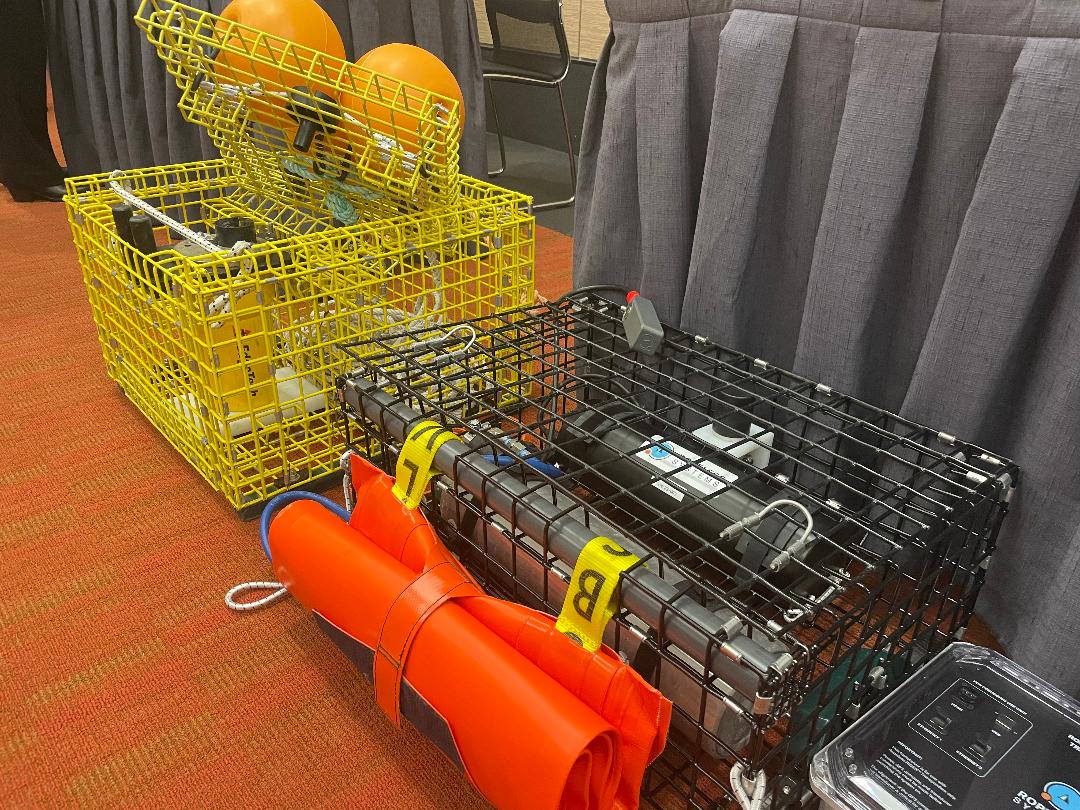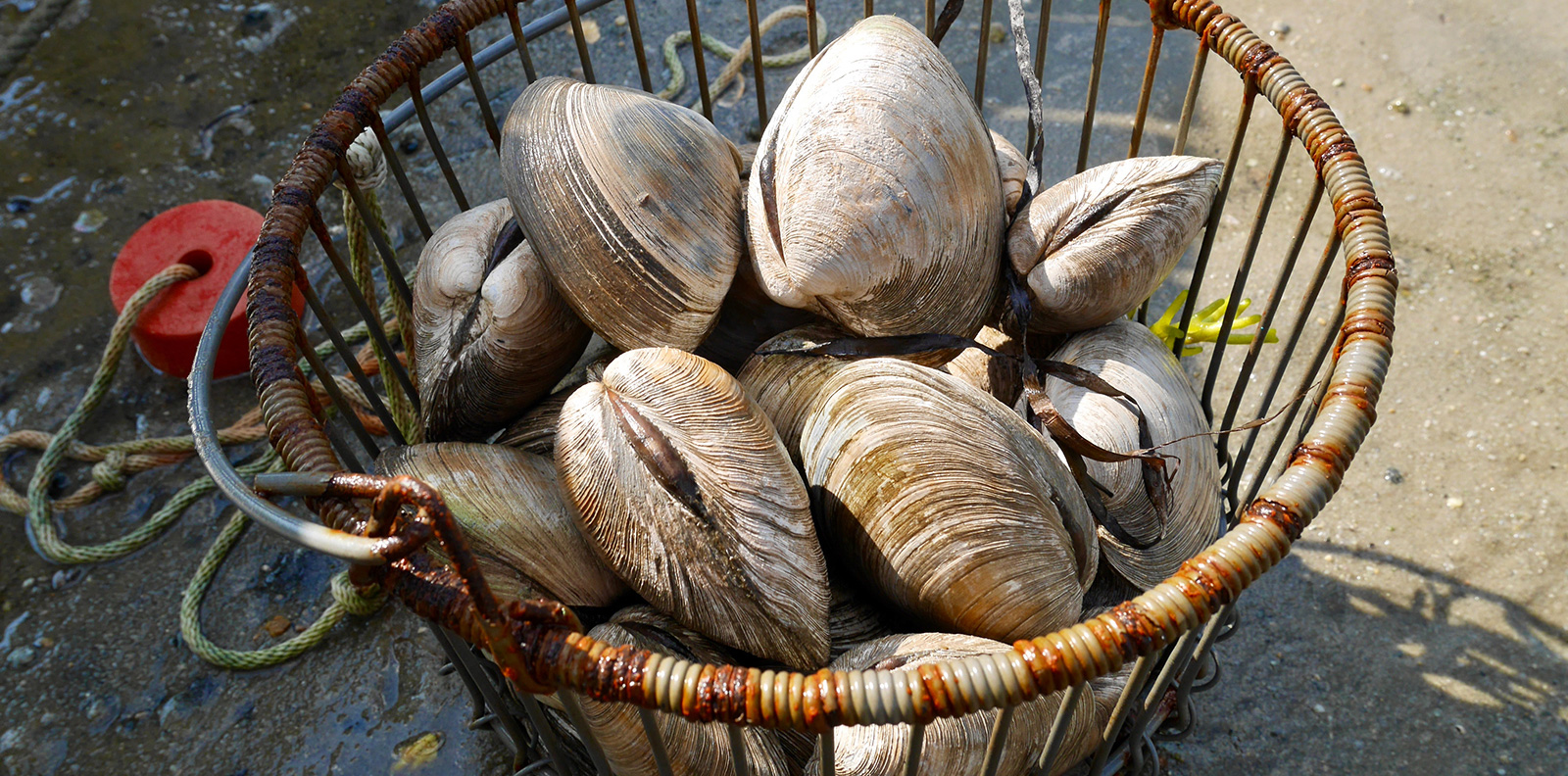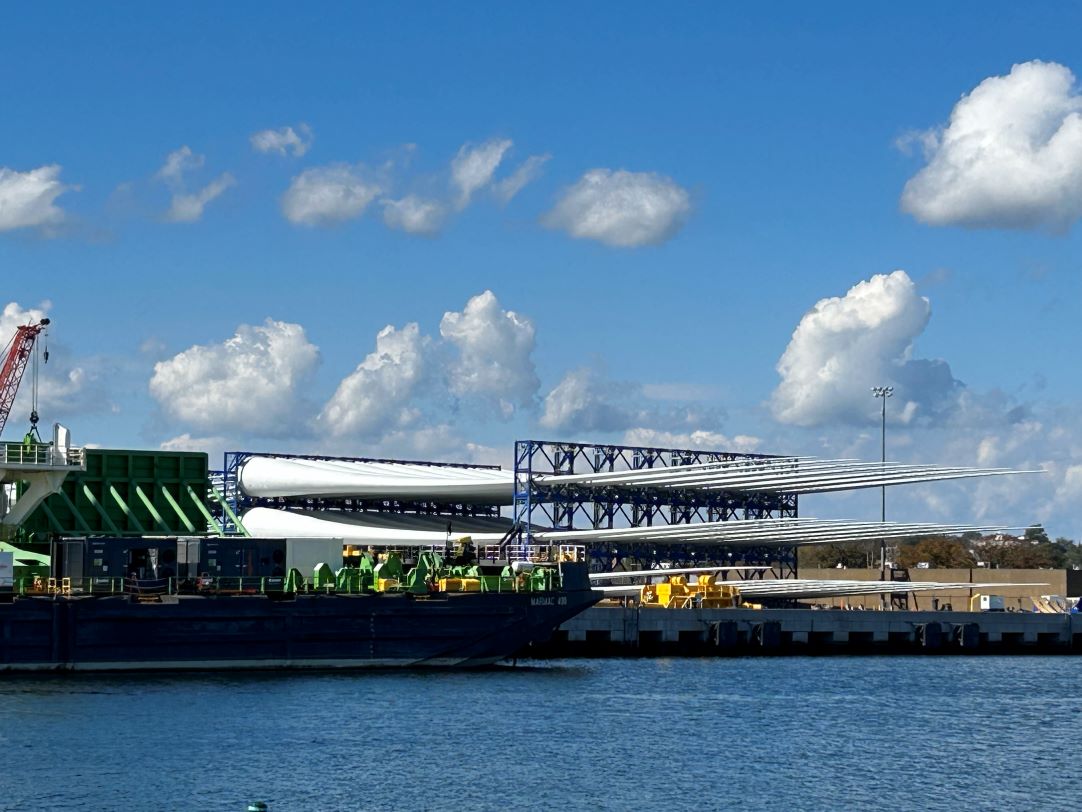Ocean State Oysters Feature ‘Perfect Flavor and Body’
August 28, 2023
PORTSMOUTH, R.I. — From the shore on a sunny afternoon in August, the Aquidneck Island Oyster Co.’s farm, which sits offshore about 500 feet from Glen Manor House, looked like little more than rows of small, dark buoys floating on top of the waves.
But inside each box, there is a micro-ecosystem, fed by the fresh ocean water pulled in by the Sakonnet River, teeming with life — not just the oysters that the company sells, but also seaweeds, mussels, and tiny crabs.
Lucky for the plants and other shelled animals growing in the boxes, it’s just the oysters that will end up on someone’s plate in one of Newport’s restaurants, a 20-minute drive down the road.
All the sea creatures came spilling out, tangled up and attached to one another, into a bin after being hauled aboard the company’s center console boat by farm owner Dan Torre and farm manager AJ Daluise.
The oysters Daluise held up in a bright, blue-gloved hand still needed to be put through a tumbler, he explained. The machine sorts oysters for size and chips at their shells to help them grow into a better shape when they’re placed back in the water to give them a little more time to develop.
While Daluise and Torre wrangled the basket, chef Scott Helquist, who came along for a tour of the farm, started shucking one of the bivalves.
“I love my job,” he said, as he opened up the golden and gray shell and slurped an oyster down.
Helquist is the raw bar specialist at The Reef in Newport, and in offering an oyster to an ecoRI News reporter, he tried to show rather than explain why he had made Torre’s product his house oyster.
“It’s perfect brine,” Helquist said. “It’s perfect flavor and body. They do a good job here.”
The flavor, which is turning slightly sweet this time of year, is largely due to the location and inundation of fresh nutrients brought in from the current. Torre had made a model of the different conditions in the area, including temperature, salinity, and chlorophyll concentration, to find where the best place to set an oyster farm would be.

After years of going through the Coastal Resources Management Council’s permitting process, Torre started the aquaculture operation during the beginning of the pandemic, in March 2020.
Since restaurants were doing less business, the company sold oysters directly to them instead of to wholesalers, and that was when Torre and Helquist got acquainted.
Helquist feels passionately about buying local, both for taste and environmental reasons.
Since July 1, The Reef only buys Ocean State oysters.
“This is a sustainable product. It should be brought to local restaurants and [customers should] taste local flavor,” Helquist said.
When restaurants buy oysters from farther away, they’re not as fresh and they come in lots of packaging, he said. “Now I got all this [expletive] waste in my dumpster.”
Product from the Aquidneck Island Oyster Co. doesn’t have to be packed for shipping; the oysters merely have to make the jaunt down to Newport.
“That’s why I went full Rhode Island, because it’s like why not just support everyone in Rhode Island,” Helquist said. “I don’t want giant Styrofoam bins.”
Beyond the benefits to the restaurant, Helquist also noted how important the oysters are to cleaning local waters and providing habitat for other creatures. The Reef has participated in The Nature Conservancy’s program to collect oyster shells for reef rehabilitation projects, fitting well with its name.
“You gotta let me know how many you need this week,” Daluise asked Helquist before pulling the oyster boat up to the Glen Manor House dock and letting its passengers off.
“Five hundred,” the chef replied.
“You got it.”




This is a self-sustaining industry that employs many local people.
Oysters can and are a source of product for our restaurants and will help with our tourist industry.
Rhode Island is gaining a reputation as a source of Superior oysters and by proper marketing and promotion can create an industry that continue to make waves. Rhode Island Oysters are gaining a reputation for quality and distinctive tastes.
What Rhodes Island needs now is an Oyster co-op to promote the industry and introduce it to the world!